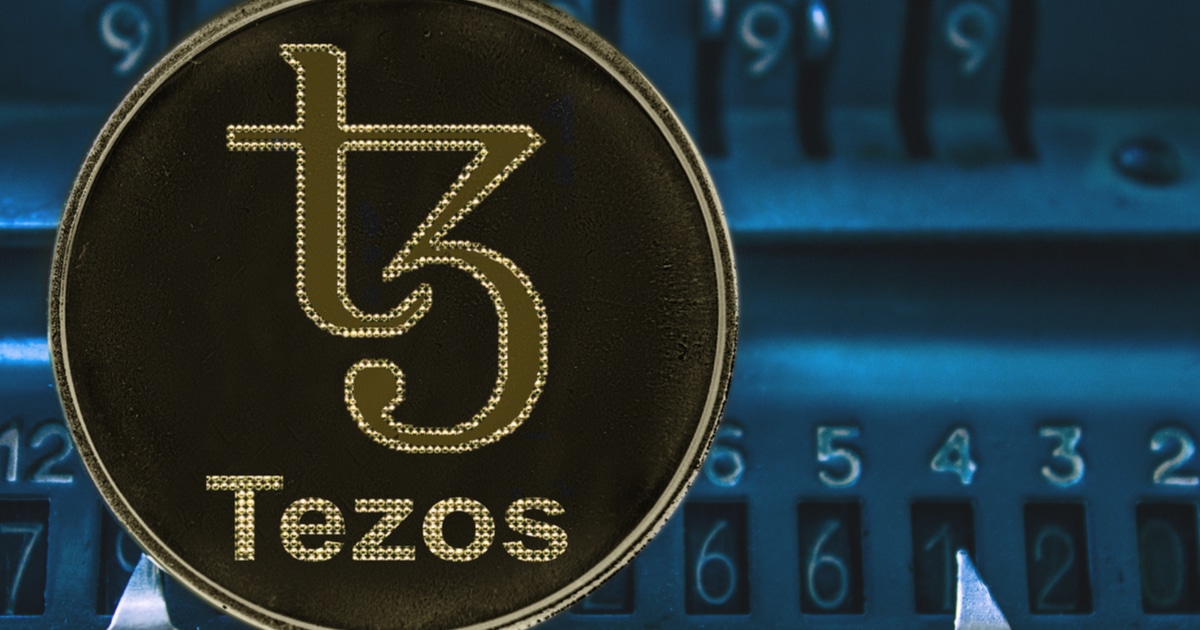Tezos Price Tests Lower Bollinger Band Support at $0.58 Amid Broader Crypto Selloff
Terrill Dicki Oct 19, 2025 09:36
XTZ trades at $0.58 with RSI at 36.88 as Tezos technical analysis shows price testing key support levels following three consecutive days of market-wide crypto declines.

Quick Take
• XTZ trading at $0.58 (down 0.2% in 24h) • Three-day selling streak follows broader cryptocurrency market downturn • XTZ price testing lower Bollinger Band support at $0.54 • Bitcoin correlation driving broader crypto weakness
Market Events Driving Tezos Price Movement
Trading on technical factors in absence of major catalysts, XTZ price has declined for three consecutive sessions alongside the broader cryptocurrency market. The most recent trading session saw Tezos close at $0.5769 on October 17, extending a decline that began earlier in the week when the token traded above $0.62.
The selling pressure appears driven primarily by Bitcoin's concurrent weakness, with BTC experiencing its own downturn during the same period. This correlation reflects the ongoing risk-off sentiment affecting digital assets broadly, rather than any Tezos-specific fundamental developments.
Market volatility increased on October 16, creating selling pressure across various cryptocurrency assets. The absence of significant XTZ-specific news events during this period suggests that technical factors and broader market sentiment are the primary drivers of current price action.
XTZ Technical Analysis: Testing Lower Band Support
Price Action Context
XTZ price currently trades well below its key moving averages, with the token positioned at $0.58 compared to its 7-day SMA of $0.60 and 20-day SMA of $0.65. The Tezos technical analysis reveals a concerning picture as the price has broken below multiple short-term support levels while maintaining distance from longer-term averages.
Volume on Binance spot market reached $998,500 in the past 24 hours, suggesting moderate institutional interest despite the bearish price action. The XTZ price movement shows strong correlation with Bitcoin's recent weakness, indicating broader market forces are influencing individual token performance.
Key Technical Indicators
The RSI reading of 36.88 places Tezos in neutral territory with a slight bearish bias, suggesting oversold conditions may be developing but haven't reached extreme levels yet. The MACD indicator shows bearish momentum with a histogram reading of -0.0050, confirming the downward price trajectory.
Most notably, the Bollinger Band analysis reveals XTZ trading near the lower band support at $0.54, with a %B position of 0.1765 indicating the price is testing this critical technical level. This positioning often precedes either a bounce back toward the middle band or a breakdown to new lows.
Critical Price Levels for Tezos Traders
Immediate Levels (24-48 hours)
• Resistance: $0.62 (EMA 12 confluence) • Support: $0.54 (lower Bollinger Band)
Breakout/Breakdown Scenarios
A break below the $0.54 support level could trigger additional selling toward the strong support zone at $0.43, representing the token's recent low. Conversely, reclaiming the $0.60 level would signal potential relief rally toward the 20-day moving average at $0.65.
XTZ Correlation Analysis
• Bitcoin: Following closely with high correlation as BTC weakness drives broader crypto selloff • Traditional markets: Limited direct correlation visible in current price action • Sector peers: Moving in line with other layer-1 blockchain tokens experiencing similar technical pressure
Trading Outlook: Tezos Near-Term Prospects
Bullish Case
Recovery above $0.60 resistance combined with Bitcoin stabilization could drive XTZ price back toward the $0.65-$0.70 range. The oversold RSI conditions suggest potential for technical bounce if broader market sentiment improves.
Bearish Case
Failure to hold $0.54 support opens path to test the $0.43 strong support level, particularly if Bitcoin continues declining. The bearish MACD momentum suggests additional downside pressure remains possible.
Risk Management
Conservative traders should consider stop-losses below $0.53 to limit exposure on support breakdown. Position sizing should account for the elevated ATR of $0.05, indicating higher than normal volatility in current market conditions.
Image source: Shutterstock.jpg)